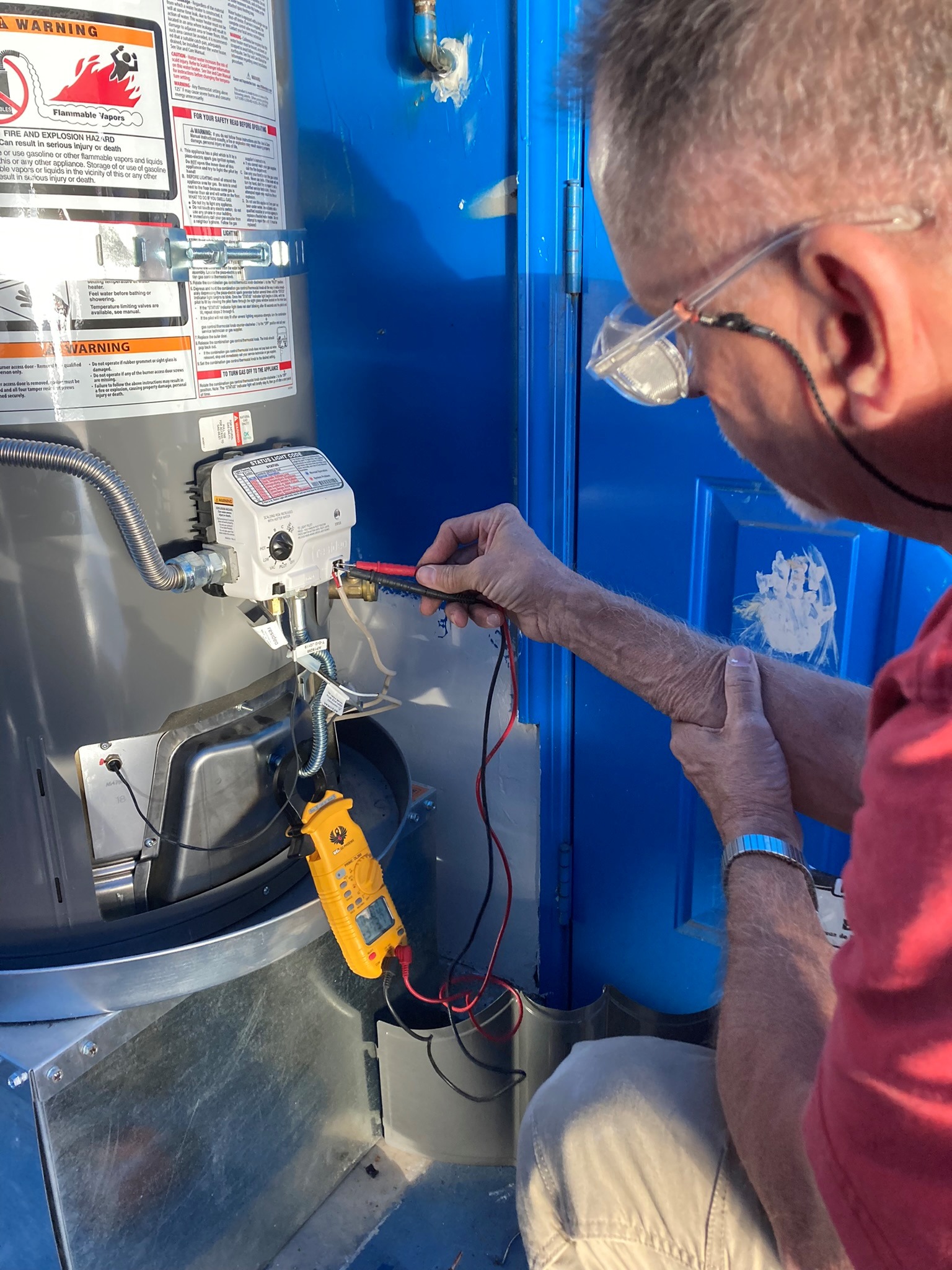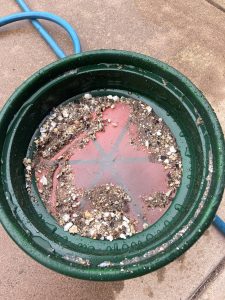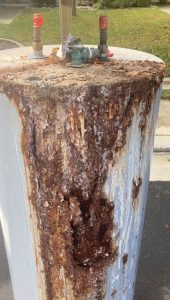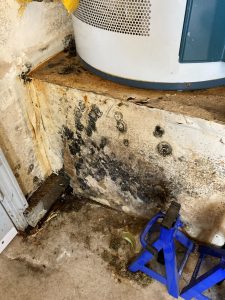
Signs Your Water Heater Needs Repair or Replacement
Your water heater is a critical component of your home, providing hot water for showers, washing dishes, and laundry. However, like all appliances, water heaters can develop issues over time. Knowing the signs that your water heater needs repair or replacement can help you avoid unexpected cold showers and costly damages. At A2Z Water Heaters, we specialize in diagnosing and addressing water heater problems, ensuring your home stays comfortable and efficient.
In this blog post, we’ll discuss the common symptoms of a failing water heater, explain when a repair is sufficient versus when a replacement is necessary, and offer guidance on what to do if your water heater is malfunctioning.
Common Symptoms of a Failing Water Heater
- Inconsistent Water Temperature One of the most noticeable signs of a failing water heater is inconsistent water temperature. If you find that your water runs hot then cold frequently, it could indicate a problem with the heating elements or thermostat.
- Unusual Noises Water heaters typically operate quietly. If you start hearing popping, banging, or rumbling noises, it could be due to sediment buildup at the bottom of the tank. The sediment can cause the heating element to overheat and produce these sounds. You may also hear strange noises coming from water pipes in your home. This can also be a sign of a problem with your water heater.
- Discolored or Rusty Water If your hot water appears rusty or has a brownish tint, it could indicate corrosion inside the water heater tank. This is a serious issue that can lead to leaks and further damage. When you don’t flush your water heater out once a year, rust and sediment builds-up in the heater and can come out your faucet. If you see discolored water, don’t drink water from the hot side of your tap and have your water heater looked at by a professional as soon as you can. Flushing out your water heater for FREE is a service A2Z Water Heaters offers.
- Water Leaks Any water pooling around your water heater is a clear sign of trouble. Leaks can result from a variety of issues, including a faulty pressure relief valve or a corroded tank. There may be other signs of water damage to the water heater stand or the walls around the water heater even if there is no pooling water. Things such as moisture and mold on surfaces near the water heater can indicate a problem.
- Low Hot Water Pressure If you’re experiencing a drop in hot water pressure, it could be due to sediment buildup in the tank or pipes, which restricts the flow of water. This could be a general plumbing problem, such as a problem with your shower cartridge in your shower, so the easiest way to tell is to call a plumber. While we specialize in water heater installation, Fred Ford, the owner, has extensive experience and can help you determine if it is a problem related to your water heater. We do not charge to come out and look at your water heater! We give free bids, so calling us won’t cost you money, even if its not related to your water heater.
- Foul-Smelling Water If your hot water has a metallic or sulfur-like smell, it could be a sign of bacterial growth inside the tank. This is particularly common in older water heaters. It can also happen if your water heater isn’t reaching the appropriate temperatures. If the water inside the tank is warm but not hot, bacteria can grow inside the tank. Do not drink foul smelling water! Call us to help you.
- Age of the Water Heater Properly installed water heaters have a lifespan of 12-15 years—12 years for a gas water heater and 15 years for an electric water heater. If your unit is beyond this range, it’s more likely to develop issues and may be nearing the end of its useful life. If it was installed by an unlicensed contractor or a permit was not pulled, it is more likely to have installation issues. If you would like us to look at your water heater for free and let you know if it is up to California building codes, give Fred a call on his personal phone (916)402-9006.
- Frequent Repairs If you find yourself frequently calling for repairs, it might be more cost-effective to replace the unit rather than continuing to invest in an aging, failing water heater. Constant repairs could also be a sign that it was not installed properly to begin with.
When to Repair Your Water Heater
In some cases, a simple repair can restore your water heater to proper working condition. Here are a few scenarios where a repair might be sufficient:
- Minor Leaks If the leak is coming from the pressure relief valve or the drain valve, these components can often be replaced without the need for a new water heater.
- Thermostat Issues If the thermostat is malfunctioning, it can often be replaced relatively easily, restoring consistent water temperatures.
- Heating Element Failure A broken heating element can cause a lack of hot water. Replacing the heating element is a common repair that can extend the life of your water heater.
- Sediment Buildup Flushing the tank to remove sediment can resolve issues with noise and improve efficiency. This is a routine maintenance task that can prevent bigger problems down the line.

Unfortunately, not all water heaters can be repaired, or are worth repairing. If a water heater was installed incorrectly, it may be dangerous to even attempt a repair. The best way to know if a repair is possible is to talk to your plumber. Ensure whoever you hire, whether it be us or someone else, has good reviews, has a plumbing license, and proudly shares with you their license number. Call us and we can help you determine if it can be repaired or if it needs to be replaced.
When to Replace Your Water Heater
There are situations where replacing your water heater is the better option. Here’s when you should consider investing in a new unit:
- Extensive Corrosion If the tank itself is corroded, it’s only a matter of time before it starts leaking. In such cases, replacing the water heater is the safest and most cost-effective solution. We have seen many water heaters that looked fine, but after inspecting the back there is significant rust and damage to the outside of the tank from a leaking water line above it.
- Age If your gas water heater is over 12 years old, or your electric water heater is over 15 years old, replace it! Don’t wait until you have issues. Replacing your old water heater BEFORE it starts having problems can save you money in the long run.
- Frequent Breakdowns Constantly needing repairs can be a sign that your water heater is nearing the end of its lifespan or that it was installed incorrectly from the get-go. Replacing it with a newer, more efficient model can save you money in the long run.
- Increased Energy Bills Older water heaters are generally less efficient, leading to higher energy costs. A new, energy-efficient water heater can reduce your monthly utility bills. We can help you decide what water heater is best for you and your home, electric, gas, or a hybrid.
- Water Heater Size If your household’s hot water needs have increased (for example, if you’ve added a bathroom or more family members), your current water heater might not be able to keep up. Upgrading to a larger unit can ensure you have a sufficient supply of hot water.

What to Do if Your Water Heater is Malfunctioning
If you suspect your water heater is malfunctioning, follow these steps:
- Check the Power Source For electric water heaters, ensure that the circuit breaker hasn’t tripped. For gas water heaters, check that the pilot light is lit. Sometimes the pilot light goes out and it is as simple as relighting it. But if you find that the pilot light keeps going out after being relit, it’s time to call a professional.
- Inspect for Leaks Look around the base of the water heater for any signs of water. Even a small puddle can indicate a serious problem. Inspect the top of your water heater as well. There are sometimes leaks that go unnoticed because it is “out of sight, out of mind”. Check behind the water heater as well, there could be rust on the backside indicating a leak. Also, check for mold on the walls and stand.
- Listen for Noises Turn on the hot water tap and listen for any unusual sounds coming from the water heater, the walls, or the tap.
- Check the Temperature Setting Ensure the thermostat is set to an appropriate temperature, typically around 120 degrees Fahrenheit. Any lower and you risk bacteria growing inside the tank. Bacteria loves luke warm water!
- Call a Professional If you’re unable to identify the problem or if it requires more than a simple adjustment, it’s time to call a professional. At A2Z Water Heaters, Fred and Joey are experts in diagnosing and repairing all types of water heater issues. They will provide you with a thorough inspection and recommend the best course of action, whether it’s a repair or a replacement.
Choosing the Right Replacement Water Heater
If you need to replace your water heater, it’s essential to choose the right type and size for your home. Here are some factors to consider:
- Type of Water Heater You have a few options when it comes to a tank water heater. You can have an electric water heater, a gas water heater, or a hybrid water heater. They each have their own pros and cons, and they each heat your water in a different way. Talk to your plumber to determine which best fits the needs of your house and family.
- Size The size of the water heater should match your household’s hot water needs. A professional from A2Z Water Heaters can help you determine the appropriate size based on a number of factors such as the number of bedrooms, size of the house, etc.
- Cost While it’s important to consider the upfront cost, also take into account the long-term operating costs. An energy-efficient water heater may have a higher initial price but can save you money over time.
Maintaining Your Water Heater
Once you’ve repaired or replaced your water heater, regular maintenance is key to ensuring its longevity and efficiency. Here are some tips:
- Flushing the Tank Sediment buildup can reduce efficiency and cause damage. Flushing the tank once a year can help prevent these problems.
- Tank Insulation It may be tempting to add additional insulation to your water heater, however, if it is a modern water heater that was installed correctly and up to building codes, it is absolutely not necessary. Wrapping any type of blanket or insulation around the outside of your water heater greatly increases the risk of a fire at your water heater. There are also very specific codes on how to insulate the water pipes of your heater. For example, they cannot be within a certain distance of an exhaust pipe due to how hot the exhaust gets. Make sure you hire a licensed plumber, make sure you or the plumber pulls a permit, and make sure it is inspected by your city or county to ensure that everything is properly insulated. At A2Z Water Heaters, we are proud to share our license number, which is 896708. We also handle pulling a permit, permit fees, scheduling the inspection, and registering your warranty!
- Monitor the Temperature Keep the thermostat set to 120 degrees Fahrenheit or higher. Talk to your plumber about what is safe temperatures to prevent scalding and optimize your energy use. Temperatures lower than 120 degrees are the perfect breeding ground for bacteria, so it is not recommended to go lower.
Conclusion
Knowing the signs that your water heater needs repair or replacement can save you from unexpected inconveniences and costly repairs. At A2Z Water Heaters, we pride ourselves on providing exceptional support and service. Fred and Joey handle all installations personally, ensuring top-notch quality and customer satisfaction. If you notice any of the symptoms mentioned above or have concerns about your water heater, don’t hesitate to call Fred at 916-402-9006 anytime. We’re here to help you keep your home safe and comfortable with reliable, efficient water heating solutions.
For more information and expert advice, visit our blog regularly. We’re committed to sharing valuable insights and tips to help you make informed decisions about your home’s plumbing needs.
